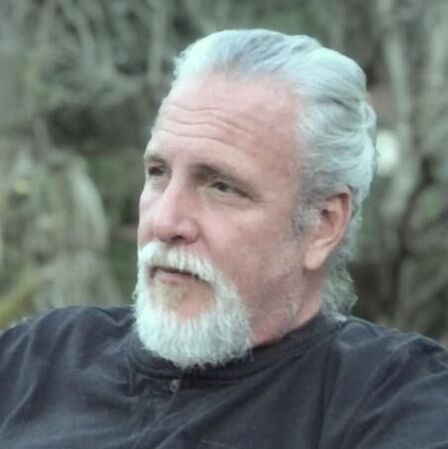Prof. Dr. Stefano Harney

stefano.harney@khm.de
Transversal aesthetics is concerned with forms of art and study that elude established social structures while critically questioning the individual and the institution. An important foundation for a concept of transversal aesthetics avant la lettre was laid by the American scholar and scientist Cedric Robinson (1940-2016) with what he called "the black radical tradition." This is a four hundred year old tradition that understands aesthetics as the basis for a resistant life. Permanently confronted with the cruelties of a racist capitalism, it develops forms of art that confront this system transversally, that is, at cross-purposes to its power structures. The focus is on difference and difference lived in communal and collaborative action. Transversal Aesthetics takes up these qualities and makes them fruitful for a critical practice of study.
Stefano Harney (*1962) is a teacher and writer who works collaboratively and collectively in the classroom, in research, and in social practice. He is a black studies scholar who has taught in the disciplines of anthropology, sociology, art criticism, American Studies, and business & management. Stefano has held appointments at Pace University and at CUNY in the US, at the University of Leicester and Queen Mary University of London in the UK, at Gadjah Mada University in Indonesia, at Ton Duc Thang University in Vietnam, and at Singapore Management University in Singapore. During 2020-2021, he was Hayden Fellow and Visiting Critic at the School of Art at Yale University and Honorary Professor at the Institute of Gender, Race, Sexuality, and Social Justice at the University of British Columbia.
Stefano is co-author with Fred Moten of The Undercommons: fugitive planning and black study (2013) and of All Incomplete (2021) both from Minor Compositions/Autonomedia Press. He is also co-author of The Liberal Arts and Management Education (2020), with Howard Thomas, published by Cambridge University Press, of State Work: Public Administration and Mass Intellectuality (2002) from Duke University Press, and of Nationalism and Identity in a Caribbean Diaspora (1996) published jointly by Zed Books and the University of the West Indies Press.
Stefano was educated at Harvard University (BA), New York University (MA) and the University of Cambridge (PhD).
Current Research Projects
Le Mardi Gras Listening Collective
Le Mardi Gras Listening Collective came together to play music publicly, talk about that music, and to solicit further requests for music selections and comments in open forums. The work of the Collective is based on an idea that music can be studied together as an embodied form of theorizing, and as an insurgent tradition of social and aesthetic communication.
Ground Provisions
Ground Provisions is a collective animated by the partnership of Stefano Harney and Tonika Sealy Thompson. The collective hosts reading camps where reading is deprivatized. Participants read together, read aloud, and share readings. These camps have been held in Barbados, Singapore, and Brazil. Ground Provisions allows the reading camps to generate further projects including film curation, public talks, and food and musical gatherings.
Pilgrims of the Undercommons
Based on a forty-year partnership with Fred Moten, Pilgrims of the Undercommons is also a practice of studying with others that takes the form of teaching, public speaking, seminars with students, and ‘renewing our habits of assembly’ as the theorist Manolo Callahan puts it. The project also involves conversations on translation and on local and global conditions as our published work has gone through collective and collaborative translations into Spanish, German, Swedish, Italian, Thai, French, and Portuguese.
freethought / BAK Fellowship / Bergen Assembly
freethought is a collective of curators and critics that came together to offer theory-based programmes amidst traditional arts institutions and festivals. The idea has been to enact study at the centre of these events and invite others to join or form other collectives of reading and thinking as integral not to the preparation of events but to the programmes themselves.
freethought has been in residency and contributed to the Former West project at the House of World Culture (HWK) in Berlin, Germany and at BAK in Utrecht, Netherlands. With HWK freethought held several small study sessions culminating in a pair of formal presentations. With BAK, freethought is planning to conduct a series of study sessions with the regular Fellows at BAK over the next two years.
Shipping and the Shipped is an exhibition co-curated with the Mumbai-based artist Ranjit Kandalgaonkar as part of freethought’s commission to co-direct the 2016 Bergen Assembly Triennial in Bergen, Norway. The exhibition is a meditation on the history of those who were shipped and those who shipped out and includes work from the artists and theorists Wu Tsang and Fred Moten, Arjuna Neuman and Denise Ferreira da Silva, and from Ranjit Kandalgaonkar.
Center for Convivial Research and Autonomy / Universidad de la Tierra
The Center for Convivial Research and Autonomy (CCRA) is a grassroots collective dedicated to exploring the intersections between collective pedagogies, convivial research, and local capacity-building. The CCRA’s investment in co-learning spaces and grassroots research projects makes available critical analytical skills, research tools, facilitation techniques, and community service strategies that address the intersections of environmental regeneration, community well-being, food sovereignty, and community safety. The CCRA facilitates several interconnected co-learning spaces that convene culture-bearers, de-professionalized intellectuals, community-based scholars, and convivial researchers to celebrate diverse knowledges, share movement building resources from within the local community, and promote democratic practices toward community empowerment. One of CCRA's principal projects, Universidad de la Tierra Califas, claims several active grassroots learning spaces that work together to contribute to the regeneration of community: reclaiming commons, facilitating intercultural and intergenerational dialogues, and reconstructing a social infrastructure of convivial spaces.



